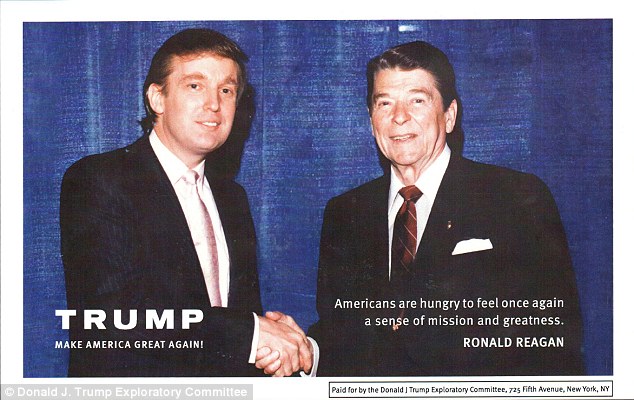
For a while, a set of liberals has argued that
The conservative arguments take several forms, but a key point shared by all of them is that there's nothing new about Trump's melding of populism and conservatism.
"I think people who see Trumpism as something aberrant in the
Lowry is right.
It is undeniable. It is also undeniable that
Or as then-candidate Trump put it in
Populism is a bottom-up phenomenon, but it is shaped and defined by rhetoric from the top. And just as there are differences between left and right populism, there are different kinds of conservative populism.
Until recently, right-wing populism manifested itself in the various forms of the tea party, which emphasized limited government and fiscal restraint. That populism was not only very different from the populism of
It is true that Reagan championed populist themes, but no one can seriously dispute that Reagan's themes and rhetoric were decidedly un-Trumpian. The conservative populist who delivered "A Time for Choosing" used broadly inclusive language, focusing his ire at a centralized government that reduced a nation of aspiring individuals to "the masses."
This was a running theme of Reagan's rhetoric. "I've been privileged to meet people all over this land in the special kind of way you meet them when you are campaigning," he said in a 1978 radio address. "They are not 'the masses,' or as the elitists would have it -- 'the common man.' They are very uncommon. Individuals each with his or her own hopes and dreams, plans and problems and the kind of quiet courage that makes this whole country run better than just about any other on place Earth."
Reagan's populist rhetoric was informed by a moderate, big-hearted temperament, a faith in American exceptionalism and a fondness for immigration. He warned of concentrated power that corrodes self-government.
"From time to time we've been tempted to believe that society has become too complex to be managed by self-rule, that government by an elite group is superior to government for, by and of the people," Reagan declared in his first inaugural. "Well, if no one among us is capable of governing himself, then who among us has the capacity to govern someone else?"
Trump rejects American exceptionalism, saying that other nations have outsmarted us. His indictment of our own government is that it is too weak and dumb. His solution: "I alone can fix it."
I'm not merely indulging in Reagan nostalgia. Every president enlists populist passion, but to leave it at that ignores the purpose of that passion and reduces "the people" to nothing more than the masses.
Comment by clicking here.
Jonah Goldberg is a fellow at the American Enterprise Institute and editor-at-large of National Review Online.


 Contact The Editor
Contact The Editor
 Articles By This Author
Articles By This Author